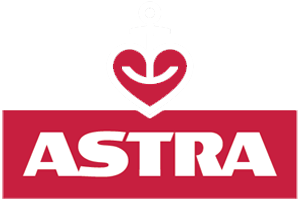Hygiene Plan
The following guidelines are established to ensure the highest standards of hygiene for both clients and tattoo artists,
in accordance with the Hamburg government’s health and safety regulations. These measures are mandatory and non-compliance
will result in exclusion from the event and potential legal consequences.
1. Preface
Tattoos involve the insertion of colored pigments into the dermis layer of the skin using needles. Given that this process creates an open wound,
it poses a risk of infection and allergic reactions. It is essential that tattoo artists and clients follow strict hygiene protocols to minimize these risks.
1.1 Health Risks / Infections
Tattoo needles may come into contact with the bloodstream, increasing the risk of transmitting bloodborne diseases such as HIV and Hepatitis B and C.
Infections can occur if proper hygiene is not maintained. Compliance with the German Infectious Diseases Protection Act (IfSG) is mandatory.
.2 Allergic Reactions
Clients may experience allergic reactions to tattoo pigments. There is no comprehensive data on the likelihood of such reactions, but all precautions must be taken to minimize risk.
2. Guidelines
2.1 Requirements for Tattoo Artists / Qualifications
Tattoo artists must:
- Be proficient in tattooing techniques.
- Understand and mitigate risks associated with tattooing.
- Refuse to tattoo clients if necessary due to health risks.
Tattoo artists must have basic knowledge in:
- Microbiology and the transmission of pathogens.
- General and specific hygiene practices.
- The disinfection and sterilization of tools and work areas.
- Protective measures for both themselves and their clients.
2.2 Personal Hygiene
Tattooing must be performed using disposable gloves (non-sterile, powder-free, CE-marked according to EN 455 1-4).
Artists should avoid touching anything unnecessary during the process. Proper hand hygiene must be observed, and sinks are provided on-site for hand washing and disinfection.
2.3 Tattoo Aftercare
Clients must be provided with verbal and/or written aftercare instructions. Adequate aftercare is crucial to
ensure proper healing. Clients should avoid exposing the tattoo to intense sunlight or physical stress.
2.4 Injury from Used Needles
In case of injury from used needles, the affected area should be allowed to bleed, treated with an appropriate antiseptic,
and medical consultation should be sought immediately. This is particularly important due to the risk of transmission of bloodborne pathogens.
2.5 Requirements for Clients / Physical Conditions
Clients must:
- Be at least 18 years of age.
- Not be under the influence of drugs, alcohol, or certain medications.
- Not be pregnant.
- Avoid tattooing over birthmarks, moles, or diseased skin.
2.6 Information and Consent
Clients must be informed of potential risks prior to the procedure, and it is recommended that they sign a consent form.
3. Work Environment
3.1 Working Area
The tattoo work area must be clean, well-ventilated, and adequately lit. Surfaces must be smooth, water-resistant, and easy to disinfect. Disposable covers should be used and replaced between clients.
3.2 Needle Disposal
Used needles must be disposed of in puncture-proof containers provided by the event organizers. These containers must remain closed when not in use and will be disposed of by the organizers when full.
3.3 Waste Management
All waste, including paper towels and color caps, must be disposed of in designated bins immediately after use. Waste bins will be provided and managed by the organizers.
4. Equipment and Materials
4.1 Tattoo Machines
Tattoo machines and clip cords must be covered with disposable plastic for each client. After use, the equipment must be cleaned and disinfected with appropriate disinfectants.
4.2 Materials and Tools
Artists must use:
- Disposable gloves and protective clothing.
- Alcohol-based disinfectants for hand hygiene and surface cleaning.
- Disposable needles and needle holders.
The event organizers will provide necessary materials such as needle disposal containers and disinfectants.
4.3 Colors
Tattoo colors must be stored in sealed containers, labeled according to current regulations. Colors must be protected from contamination at all times.
4.4 Lubricants, Shavers, Spatulas, and Paper Towels
These items must be stored in closed containers and handled with unused gloves. They must be disposed of after single use.
5. Disinfection Procedures
5.1 Hand Disinfection
Hand disinfection is crucial to prevent infection. Artists must disinfect their hands before and after contact with clients, after contact with potentially contaminated surfaces, and after removing gloves.
5.2 Disinfection of Work Areas
Work surfaces, chairs, and other equipment must be disinfected after each client. Appropriate disinfectants with proven efficacy against bloodborne pathogens must be used.
6. Piercings
6.1 Preface
Piercings involve puncturing the skin, which poses a risk of transmitting pathogens. Strict hygiene measures must be followed to prevent infections.
6.2 Working Area
The piercing area must be separate and sanitized. Only essential equipment should be in the room, and no food, drinks, or unnecessary items are allowed.
6.3 Waste Disposal
Sharp instruments must be disposed of in puncture-proof containers immediately after use. These containers must be kept within arm’s reach and disposed of according to regulations.
6.4 Prohibited Treatments
Piercings should not be performed on clients under the influence of drugs or alcohol, or on minors without parental consent.
6.5 Pre- and Post-Care
The skin area to be pierced must be thoroughly cleaned and disinfected before the procedure. Clients must be informed about proper aftercare to prevent complications.
6.6 Processing of Tools and Jewelry
All tools and jewelry must be disinfected immediately after use. Proper cleaning and sterilization procedures must be followed.
Supplementary Clause
All hygiene regulations must be strictly observed. Non-compliance will result in immediate exclusion from the event and potential legal actions.
If any provision of this guideline is found to be invalid, the remaining provisions will continue to apply.
This revised plan aligns with the hygiene standards required by the Hamburg government and ensures the safety of all participants in the Tattoo Titans Hamburg event.
